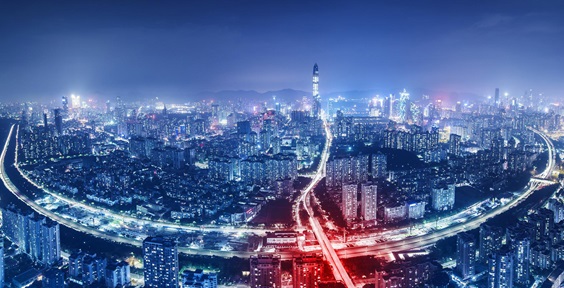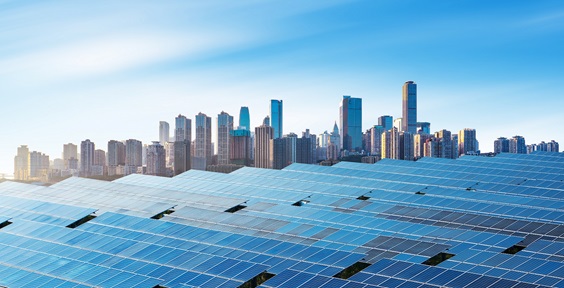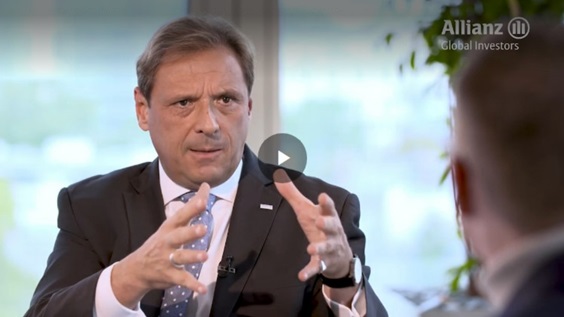
Summary
Anthropogenic air pollution constitutes one of the most serious threats to human health, affecting lifestyle habits as well as causing deep social concerns and economic disruption. The deterioration of air quality – both outdoor and indoor – not only costs innumerable lives, and significantly diminishes life expectancy but is also a major burden on the global economy, triggering billions of costs. Explore how sustainable investments can help to address the most pressing air-pollution-related challenges.
Key takeaways:
- Anthropogenic air pollution constitutes one of the most serious threats to human health, affecting lifestyle habits as well as causing deep social concerns and economic disruption.
- The deterioration of air quality – both outdoor and indoor – costs innumerable lives, and significantly diminishes life expectancy.
- As stated by the World Health Organisation (WHO), “91% of the world’s population breathes air that is not safe.”
- Air pollution is also a major burden on the global economy, triggering billions of costs due to, amongst other things, work absence and lower productivity.
- Investments in innovative companies that produce clean energy from sustainable sources, or manufacture highly elaborate industrial filtration systems, can help to address the most pressing air-pollution-related challenges
Summary
- Anthropogenic air pollution constitutes one of the most serious threats to human health, affecting lifestyle habits as well as causing deep social concerns and economic disruption.
- The deterioration of air quality – both outdoor and indoor – costs innumerable lives, and significantly diminishes life expectancy.
- As stated by the World Health Organisation (WHO), “91% of the world’s population breathes air that is not safe.” 1
- Air pollution is also a major burden on the global economy, triggering billions of costs due to, amongst other things, work absence and lower productivity.
- Investments in innovative companies that produce clean energy from sustainable sources, or manufacture highly elaborate industrial filtration systems, can help to address the most pressing air-pollution-related challenges
Tackling air pollution with sustainable investments
|
“Air pollution is an invisible killer that we may face on a simple walk home or even in our home.” 1 |
Together with the mostly uncontrolled burning of agricultural and municipal waste, the combustion and evaporation of fossil fuels – mainly from power plants, industry and vehicle engines – represent the main source of polluted air.
Sources of some key air pollutants
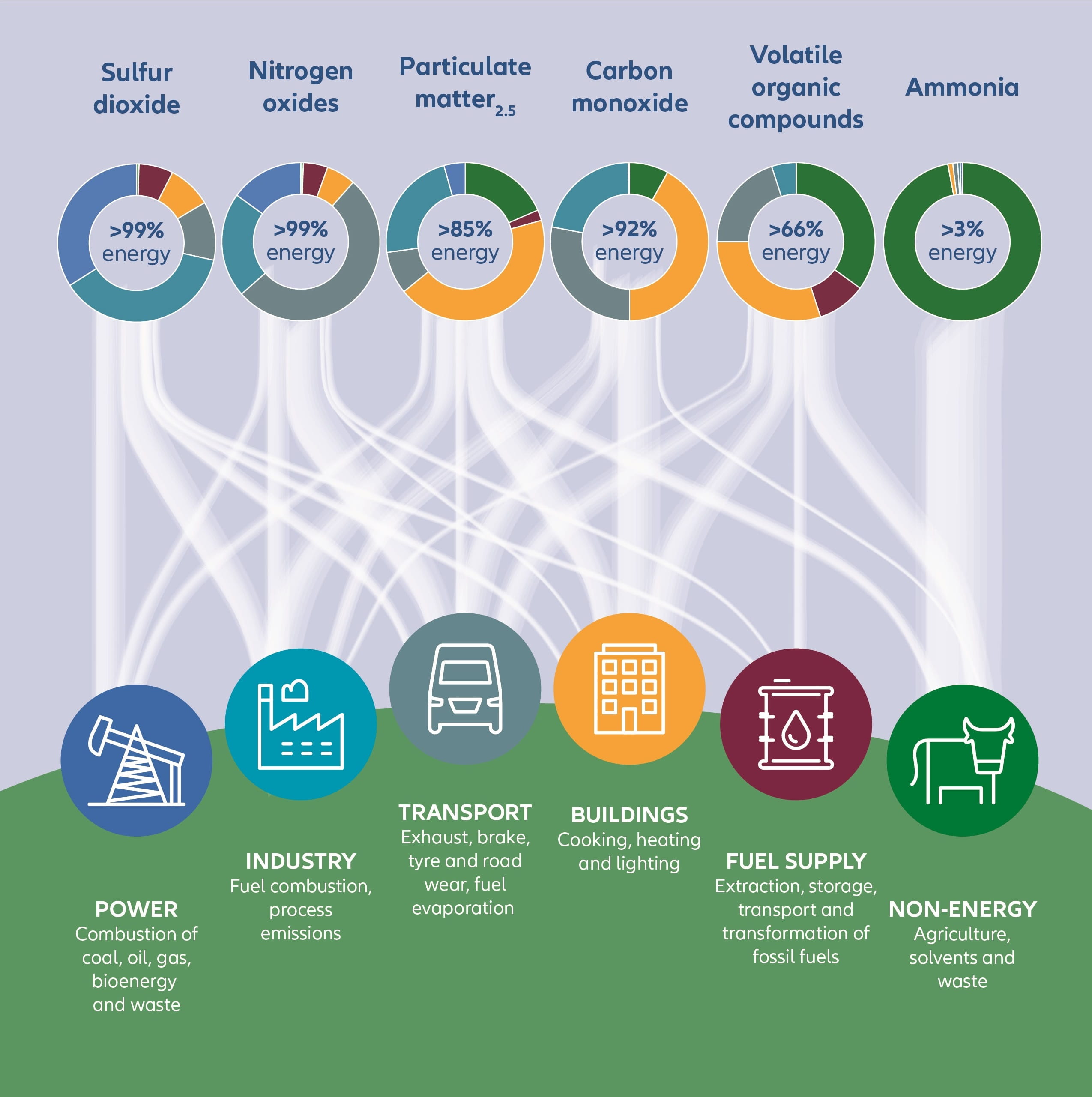
Source: International Energy Agency 2016.
Fossil fuel combustion also marks the starting point of a “vicious circle” that leads to continuous production of particulate matter and greenhouse gases (GhGs). Every day this loop affects billions of people globally, as they go about their usual outdoor activities, constantly exposed to health-threatening microscopic – and hence invisible – air pollutants (fine particulate matter, PM2.5).
The "vicious circle" of air pollution
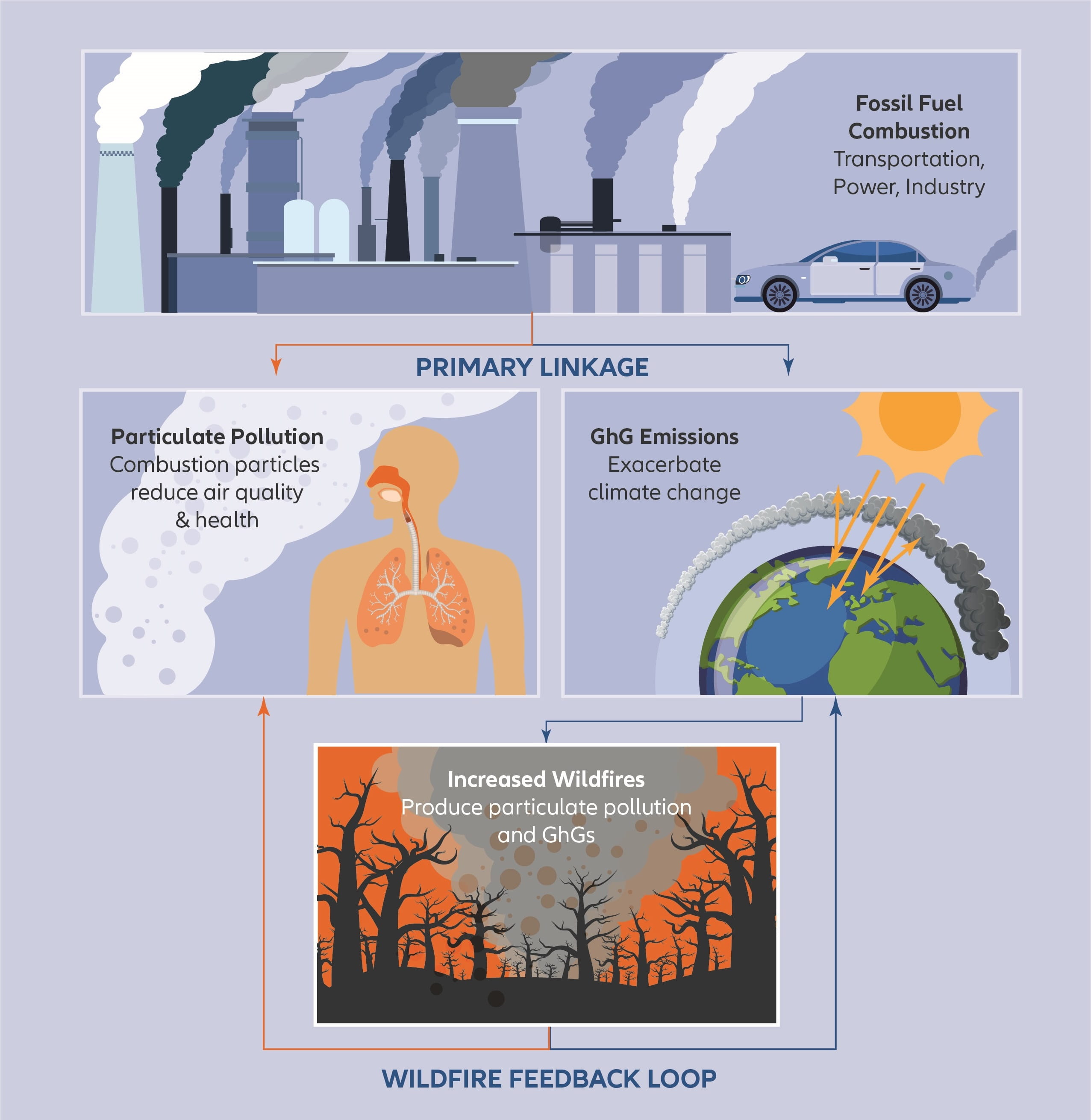
Source: https://aqli.epic.uchicago.edu/wp-content/uploads/2021/08/AQLI_2021-Report.EnglishGlobal.pdf
But the invisible killer is also lurking indoors, causing millions of premature deaths a year, and is primarily caused by activities such as cooking and heating over open fires with solid fuels like wood and other biomass-based fuels.2
How air pollution affects our health
Temporary effects of air pollution on our health include eye, nose and throat irritation, as well as wheezing, coughing, chest tightness and breathing difficulties.
Long-term exposure to air pollution may cause cancer and damage to the immune system. It can severely affect neurological, reproductive and respiratory systems, and lead to an increased likelihood of cardiovascular diseases. Poor air quality increases the risk of heart attack, and can worsen existing lung problems, such as asthma. In extreme cases, air pollution may even cause death.
Conversely, a reduction in air pollution in line with the WHO guidelines could lead to a prolongation of the average global life expectancy by 2.2 years.3
Growing urbanisation as a primary source of dirty air
Estimates suggest that by 2050 around two-thirds of the global population (i.e., 6.7 billion of approx. 10 billion people) will be living in urban settings. Considering that cities already generate 70% of global carbon emissions, and consume two-thirds of the world’s energy,4 the significance of fostering concepts for a greener and more sustainable urbanisation, hand in hand with more sustainable construction and transportation systems, becomes even more obvious and urgent.
|
According to recent studies, residents of the most polluted areas of the world could see their life expectancy cut short by five years, or even more.5 |
1. Outdoor and indoor air pollution of buildings
The rapid increase in an urbanised population is accompanied by a growing need for housing and commercial buildings. During their whole lifecycle, such constructions have an environmental impact that contributes to air pollution.
Processes like excavation, brickmaking and transportation of construction waste lead to higher emissions,6 and consequently to a higher concentration of particulate pollutants.
Studies suggest that more efficient brick-firing can lessen the pollutant emissions by over 90%.7
From an indoor-air-pollution perspective, natural or passive ventilation of buildings favours the ingress of polluted air. With deteriorating outdoor air, and with rising temperatures due to climate change, it is expected that by 2050 the global energy demand from air conditioners will triple. This will lead to an even higher demand for energy and have significant impact on global air quality. Considering that indoor air pollution is responsible for the deaths of 4.3 million people annually,8 appropriate heat-trapping and energy-efficient filtration systems can help to not only reduce emissions and energy usage, but also lower the overall operating costs for end-users.
2. Mobility and transportation
In order to provide healthier air quality in urban settings, investment is needed to “de-carbonise” public transportation systems and individual mobility. Although several cities and governments are gradually reshaping the future of transportation by:
- incentivising and subsiding the production of EVs, and a comprehensive charging infrastructure.
- turning their public transportation fleets carbon-neutral
traffic-related air pollution of urban centres is still a significant contributor to the emission of particulate matter.9
Banning gas and diesel vehicles from city centres, or even banning their sale and at the same time boosting EV or hydrogen-fueled cars, is undoubtedly a step in the right direction to fighting air pollution. Accordingly, economic or regulatory backdrops serve as catalysts, as they support the growth and market penetration of carbon-neutral mobility.
Still, more action is needed, to at least meet the corresponding SDG targets 3.9.1 (reduction in deaths and illnesses from air pollution), 7.1.2 (access to clean energy in homes) and 11.6.2 (reducing the environmental impact of cities through improved air quality).
The cost side of air pollution
In 2018, air pollution triggered a staggering cost of USD 2.9 trillion to the global economy, corresponding to 3.3 % of the world's GDP. In the same year, unhealthy air quality caused 1.8 billion days of work absences worldwide.10
Other estimates suggest that air pollution accounts for USD 5 trillion, annually, in welfare costs for the global economy. 11
The Economic Burden of Air Pollution
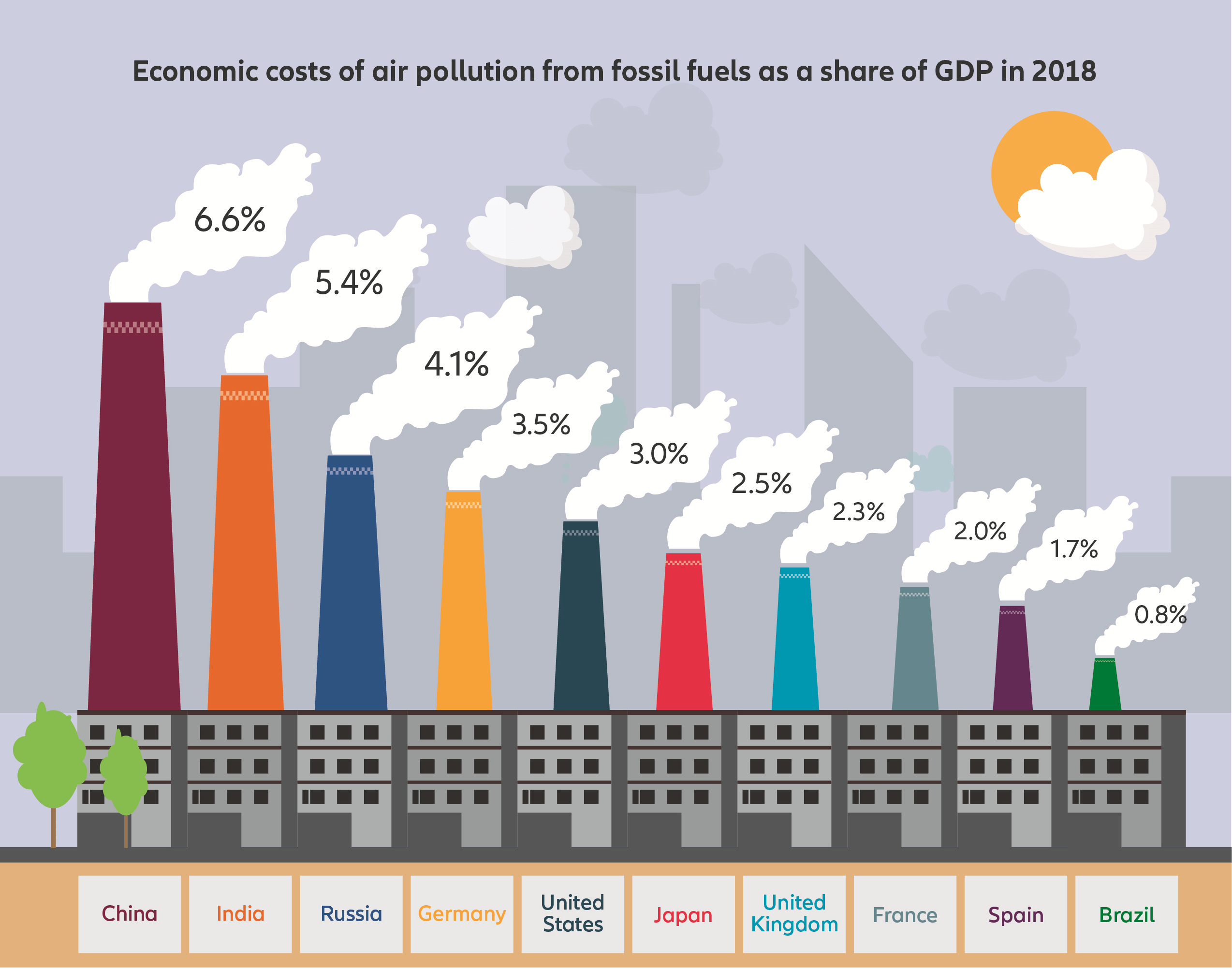
Source: Statista, Greenpeace, Centre for Research on Energy and Clean Air
Comparing these enormous costs resulting from air pollution with the investments aimed at mitigating the impact of this “invisible killer” on human health, there is an evident imbalance. This is the case not only when it comes to private funding vs. investments needed, but also with regard to global development aid.
The disparity becomes even clearer when looking at the analysis “The state of global air quality funding 2021”.12 According to this report, between 2015 and 2020 only 0.7% of total development finance was spent on air pollution-related projects, with most of the funds coming from multilateral development banks.
With approximately USD 6 billion, China was the largest recipient of funding linked to improving air quality, followed by Mongolia, the Philippines and Pakistan. India, although accounting for over 1 million premature deaths annually from air pollution, ranked eighth.
In a nutshell, countries in developing markets that are disproportionately affected by air pollution, and shouldering heavy economic burdens, have the least access to affordable health services and financial resources to protect them from pollutants.
Allianz Global Investors identifies innovators to address air pollution
While the combustion of fossil fuel is still the main source of air pollution, the transition to a fully carbon-free power supply and carbon-neutral mobility is well under way to help address this.
To accelerate the transition, and address air pollution-related challenges, Allianz Global Investors identifies innovators providing electricity from renewable energy sources, and industrial filtration, that meet the highest requirements. We invest in key enablers that manufacture emissions-control catalysts for power generation – as well as dust, fume and mist collectors, and air filtration systems used in industrial gas turbines.
We also continue to look at companies that produce automotive catalysts used to clean the exhaust gases from internal combustion engines, and materials for long-lasting lithium-ion batteries to pave the way for a greener mobility.
Investments in such companies can help to redirect capital towards more sustainable solutions that contribute to improved outdoor and indoor air quality and mitigate the impact of the “invisible killer” air pollution on human health and on global economic output.
Find out more about sustainable investment at Allianz Global Investors here:
1 https://www.who.int/data/gho/data/themes/theme-details/GHO/air-pollution
2 https://www.who.int/news-room/fact-sheets/detail/household-air-pollution-and-health
3 https://aqli.epic.uchicago.edu/wp-content/uploads/2021/08/AQLI_2021-Report.EnglishGlobal.pdf
4 https://unhabitat.org/World%20Cities%20Report%202020
5 https://aqli.epic.uchicago.edu/wp-content/uploads/2021/08/AQLI_2021-Report.EnglishGlobal.pdf
6 https://worldgbc.org/clean-air-buildings/impacts
7 https://worldgbc.org/clean-air-buildings/solutions
8 https://wedocs.unep.org/bitstream/handle/20.500.11822/21800/UNEA_towardspollution_long%20version_Web.pdf?sequence=1&isAllowed=y
9 https://www.sciencedirect.com/science/article/pii/S0160412020317815
10 https://www.statista.com/chart/20804/costs-of-air-pollution-from-fossil-fuels/ and https://www.weforum.org/agenda/2020/02/the-economic-burden-of-air-pollution
11 https://worldgbc.org/clean-air-buildings/impacts
12 https://www.cleanairfund.org/wp-content/uploads/2021/09/The-State-of-Global-Air-Quality-Funding-2021-report-compressed-2.pdf
Investing involves risk. The value of an investment and the income from it will fluctuate and investors may not get back the principal invested. Past performance is not indicative of future performance. This is a marketing communication. It is for informational purposes only. This document does not constitute investment advice or a recommendation to buy, sell or hold any security and shall not be deemed an offer to sell or a solicitation of an offer to buy any security. The views and opinions expressed herein, which are subject to change without notice, are those of the issuer or its affiliated companies at the time of publication. Certain data used are derived from various sources believed to be reliable, but the accuracy or completeness of the data is not guaranteed and no liability is assumed for any direct or consequential losses arising from their use. The duplication, publication, extraction or transmission of the contents, irrespective of the form, is not permitted. This material has not been reviewed by any regulatory authorities. In mainland China, it is used only as supporting material to the offshore investment products offered by commercial banks under the Qualified Domestic Institutional Investors scheme pursuant to applicable rules and regulations. This document does not constitute a public offer by virtue of Act Number 26.831 of the Argentine Republic and General Resolution No. 622/2013 of the NSC. This communication’s sole purpose is to inform and does not under any circumstance constitute promotion or publicity of Allianz Global Investors products and/or services in Colombia or to Colombian residents pursuant to part 4 of Decree 2555 of 2010. This communication does not in any way aim to directly or indirectly initiate the purchase of a product or the provision of a service offered by Allianz Global Investors. Via reception of his document, each resident in Colombia acknowledges and accepts to have contacted Allianz Global Investors via their own initiative and that the communication under no circumstances does not arise from any promotional or marketing activities carried out by Allianz Global Investors. Colombian residents accept that accessing any type of social network page of Allianz Global Investors is done under their own responsibility and initiative and are aware that they may access specific information on the products and services of Allianz Global Investors. This communication is strictly private and confidential and may not be reproduced. This communication does not constitute a public offer of securities in Colombia pursuant to the public offer regulation set forth in Decree 2555 of 2010. This communication and the information provided herein should not be considered a solicitation or an offer by Allianz Global Investors or its affiliates to provide any financial products in Brazil, Panama, Peru, and Uruguay. In Australia, this material is presented by Allianz Global Investors Asia Pacific Limited (“AllianzGI AP”) and is intended for the use of investment consultants and other institutional/professional investors only and is not directed to the public or individual retail investors. AllianzGI AP is not licensed to provide financial services to retail clients in Australia. AllianzGI AP (Australian Registered Body Number 160 464 200) is exempt from the requirement to hold an Australian Foreign Financial Service License under the Corporations Act 2001 (Cth) pursuant to ASIC Class Order (CO 03/1103) with respect to the provision of financial services to wholesale clients only. AllianzGI AP is licensed and regulated by Hong Kong Securities and Futures Commission under Hong Kong laws, which differ from Australian laws. This document is being distributed by the following Allianz Global Investors companies: Allianz Global Investors U.S. LLC, an investment adviser registered with the U.S. Securities and Exchange Commission; Allianz Global Investors Distributors LLC, distributor registered with FINRA, is affiliated with Allianz Global Investors U.S. LLC; Allianz Global Investors GmbH, an investment company in Germany, authorized by the German Bundesanstalt für Finanzdienstleistungsaufsicht (BaFin); Allianz Global Investors (Schweiz) AG; Allianz Global Investors Asia Pacific Ltd., licensed by the Hong Kong Securities and Futures Commission; Allianz Global Investors Singapore Ltd., regulated by the Monetary Authority of Singapore [Company Registration No. 199907169Z]; Allianz Global Investors Japan Co., Ltd., registered in Japan as a Financial Instruments Business Operator [Registered No. The Director of Kanto Local Finance Bureau (Financial Instruments Business Operator), No. 424, Member of Japan Investment Advisers Association and Investment Trust Association, Japan]; and Allianz Global Investors Taiwan Ltd., licensed by Financial Supervisory Commission in Taiwan.
AdMaster: 1849880
Active is: Thinking sustainably
Beyond climate: it's time for investors to protect biodiversity
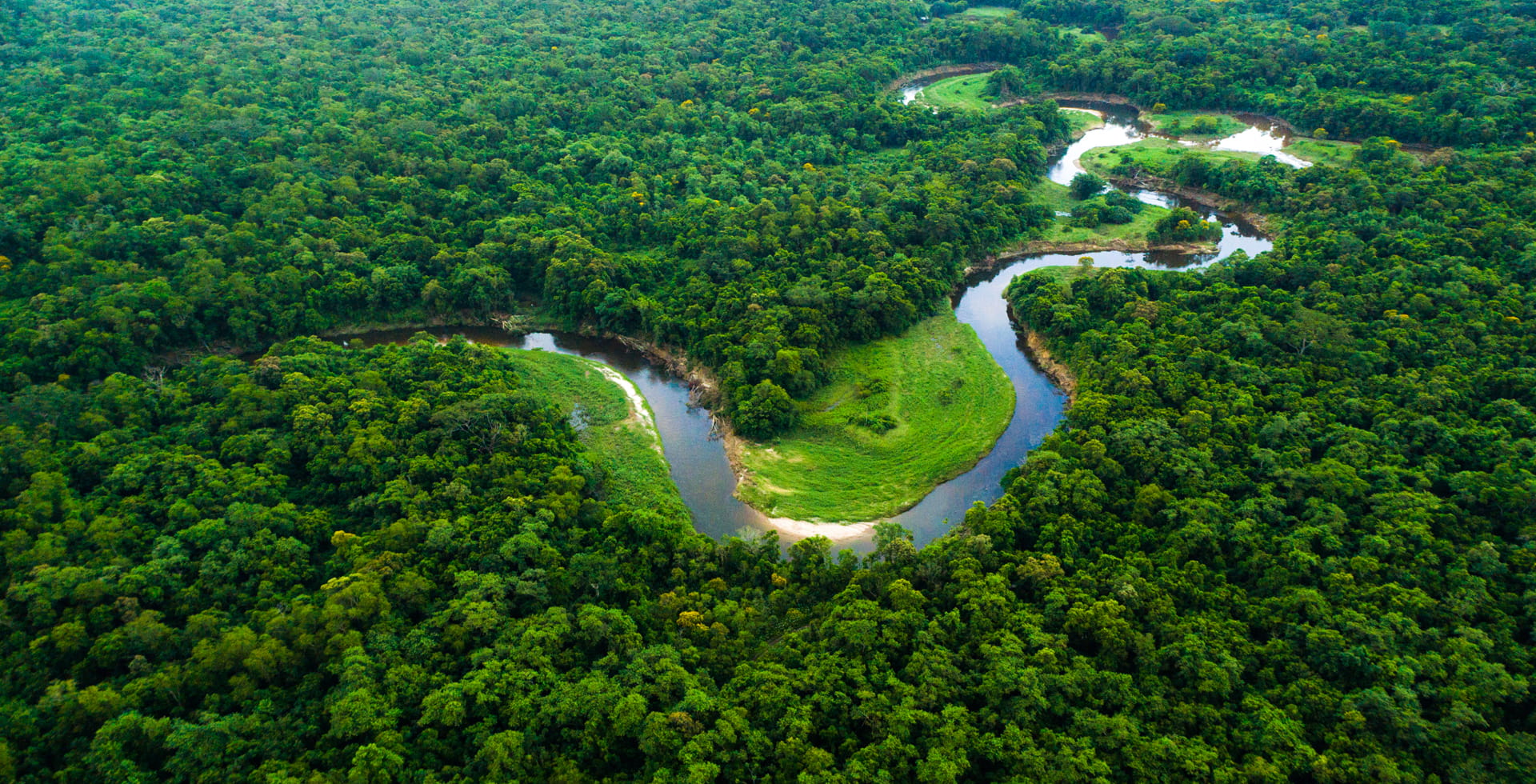
Summary
Part one of the latest UN Biodiversity Conference ended with optimism that biodiversity can be put on a path to recovery by 2030. It has never been more important for investors to play a role in protecting and promoting the world’s natural capital.
Key takeaways:
- Biodiversity is falling fast due mainly to human activity, with little action being taken to tackle the crisis
- There are reasons for optimism regarding biodiversity, as it’s not too late to tackle the crisis and there is every chance of political consensus for action
- Investors can play an important part by integrating biodiversity factors into their investment processes and backing innovators





